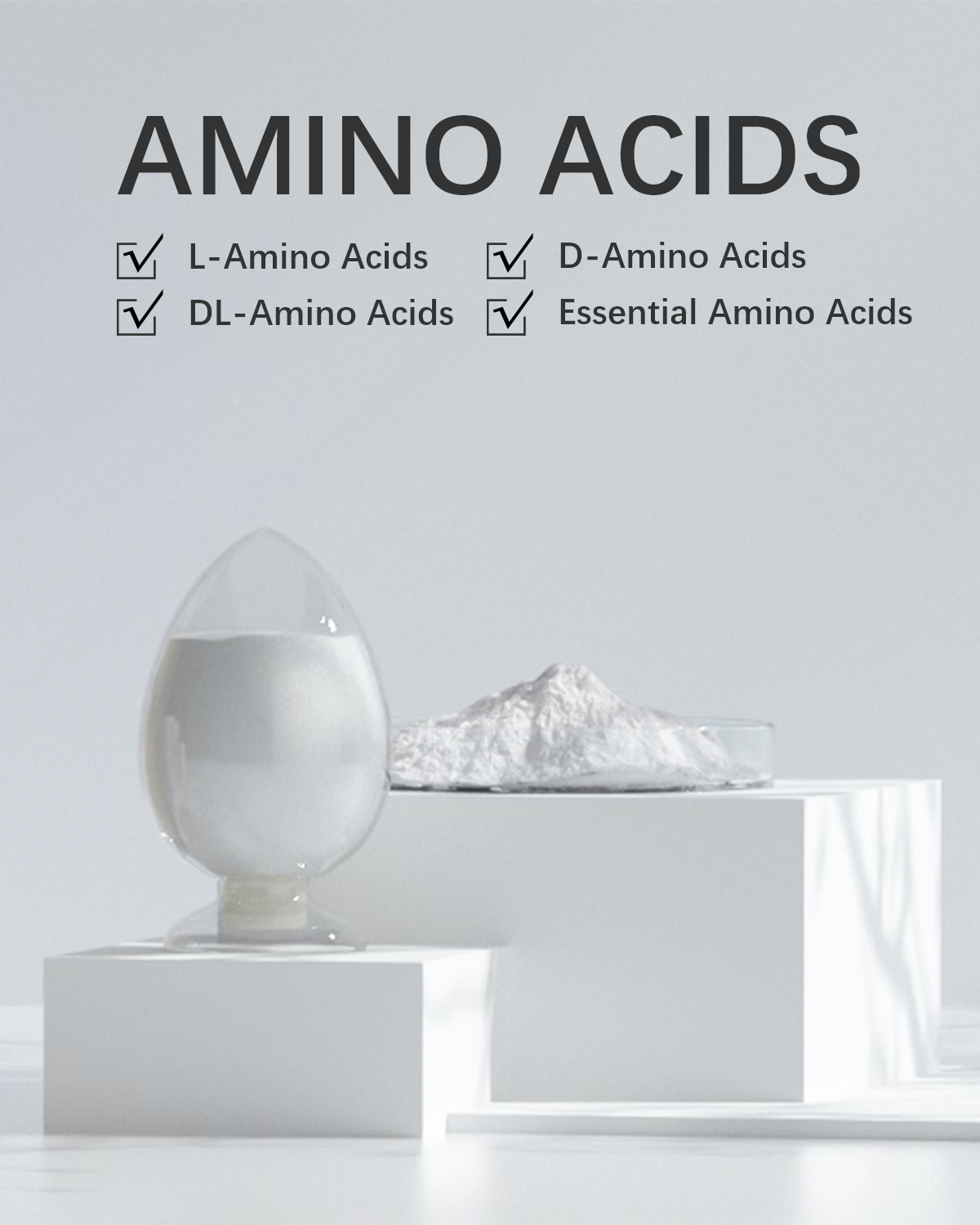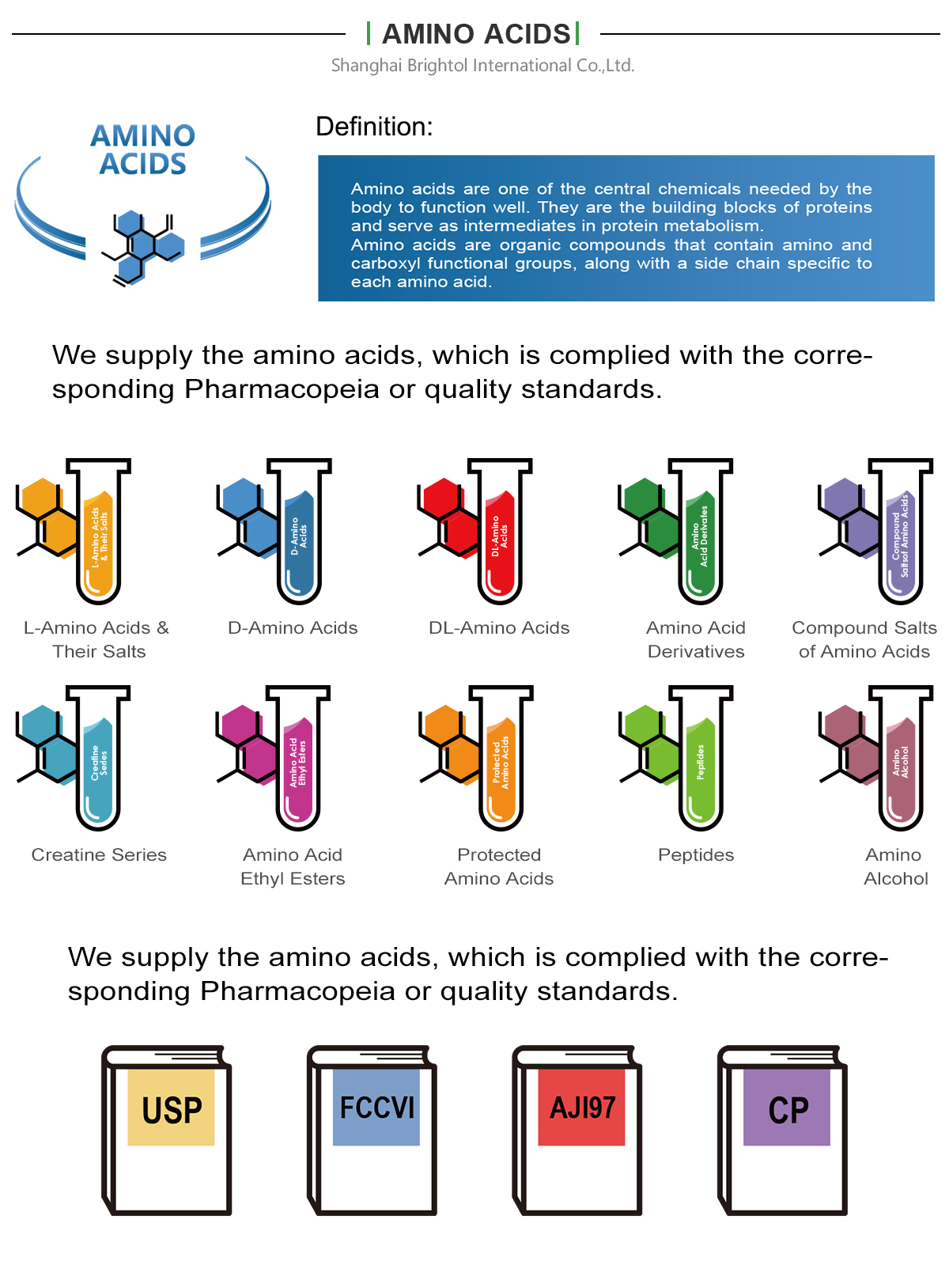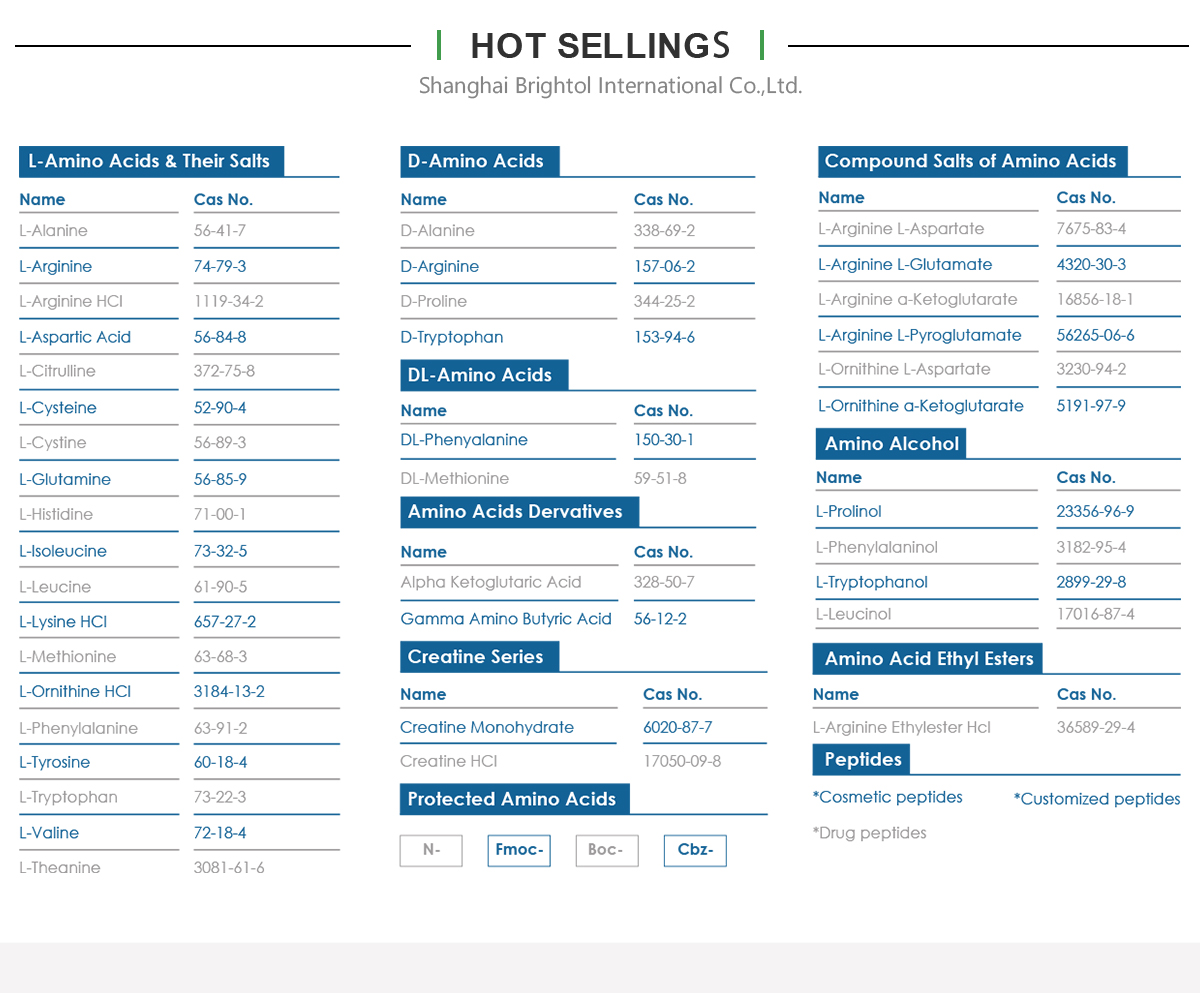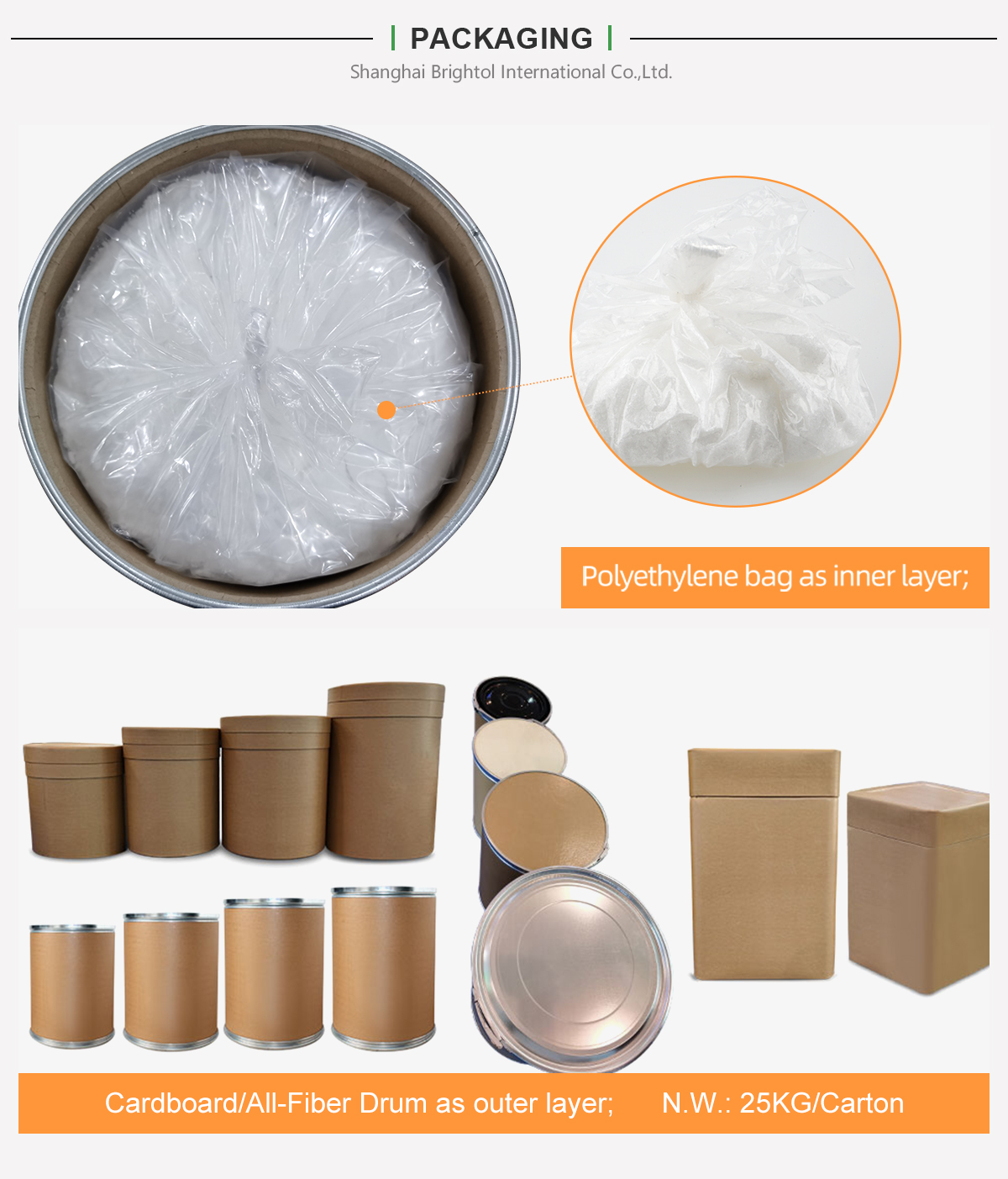

Product Name: L-Theanine
Synonyms: N-Ethyl-L-glutamine; L-Glutamic acid gamma-(ethylamide)
Molecular Formula: C7H14N2O3
Molecular Weight: 174.20
CAS No.: 3081-61-6
EINECS: 221-379-0
Description
L-theanine (also called theanine, or sometimes r-glutamylethylamide) is an amino acid that impacts nerve impulses in the brain and the release of neurotransmitters, including GABA. It is known as natural ananxiolytic because it can have a calming, sedative effect on the body and mind without making you feel drowsy — which is why it’s often used to reduce anxiety, hyperactivity and sleep-related problems.


Product Name: L-Theanine
Synonyms: N-Ethyl-L-glutamine; L-Glutamic acid gamma-(ethylamide)
Molecular Formula: C7H14N2O3
Molecular Weight: 174.20
CAS No.: 3081-61-6
EINECS: 221-379-0
Description
L-theanine (also called theanine, or sometimes r-glutamylethylamide) is an amino acid that impacts nerve impulses in the brain and the release of neurotransmitters, including GABA. It is known as natural ananxiolytic because it can have a calming, sedative effect on the body and mind without making you feel drowsy — which is why it’s often used to reduce anxiety, hyperactivity and sleep-related problems.
Most people don’t acquire a lot of theanine from their diets since it’s not available in many commonly eaten foods. It’s a unique amino acid because it’s not used to form proteins — unlike many other amino acids, such as l-carnitine, leucine, lysine, methionine or tryptophan — and is not used to make enzymes. The greatest sources of L-theanine in our diets are green, black and white teas — but because most people don’t drink very large quantities of tea on a daily basis, L-theanine supplements can be beneficial.
Health benefits
1) Help Relieve Anxiety and Reduce Effects of Stress
2) Help Improve Sleep and Fight Insomnia
3) Help Improve Attention
4) Help Protect Memory and Cognition
5) Help Support Cardiovascular Health









